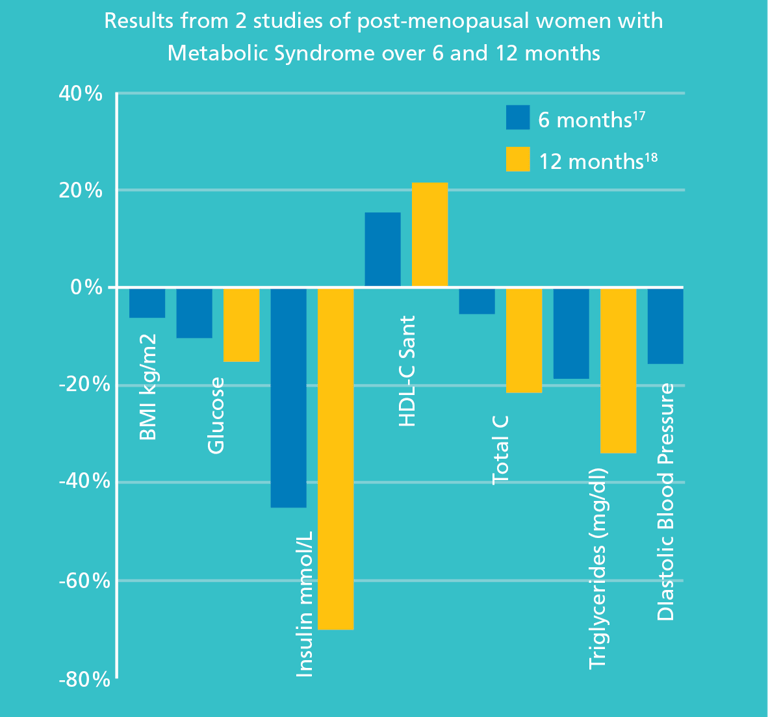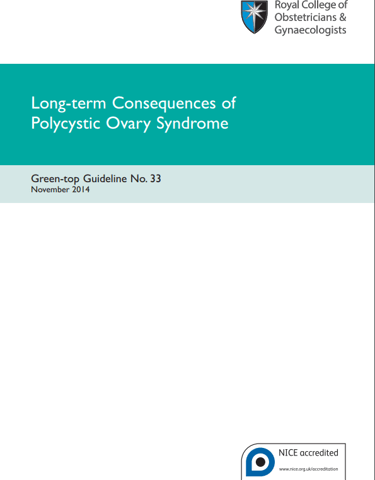Menstrual cycle disturbances
If you have irregular or absent periods you may be at an increased risk of endometrial cancer. Normalising your cycle and ensuring that you have menstrual bleeding at least once every 3-4 months, which renews the uterine lining, helps eliminate the elevated risk.
Type 2 Diabetes
Type 2 Diabetes (T2D) is an increasingly common condition that requires medical intervention. In PCOS there is an increased risk of developing T2D, diabetes in pregnancy, high cholesterol and high blood pressure. Without treatment, about 10-20% of women with PCOS develop diabetes at some point. It is important that effective treatment is given as people with type 2 diabetes are at increased risk of developing microvascular (affecting small blood vessels) and macrovascular (large blood vessels and the heart) complications, namely:
Cardiovascular (heart and large blood vessels) disease
Cerebrovascular (brain blood supply) disease
Peripheral vascular disease
Neuropathy (loss of feeling in your nerves, particularly in the hands and feet)
Renal (kidneys) disease
Retinopathy (damage to the back of the eye – can lead to blindness if untreated)
Replenitol can correct the underlying metabolic disturbances and bring women back into the normal risk range


PCOS has long term health implications.
6% reduction in BMI within 6 months (17)
LDL reduced by over 20% (18)
HDL raised by over 20% (18)
Replenitol can reduce or eliminate the risk factors
Correction of dyslipidaemia leads to a reduction of long-term risk factors (17,18)
Metabolic Syndrome, PCOS and T2D share several signs, including impaired glucose tolerance and dyslipidemia.
Treatment with Replenitol can correct both, returning them to the normal range. The action on cholesterol is discriminatory, raising HDL-C and decreasing LDL-C by a similar amount.
Replenitol returns “good” and “bad” cholesterol to normal levels
The metabolic syndrome (MetS) affects nearly half of women with PCOS at some time. Insulin resistance is the main common factor. People with MetS typically have increased abdominal fat, glucose intolerance, insulin resistance and altered blood fats – very similar to PCOS. This can cause significant health problems if left untreated.
Cardiovascular risk factors and Cholesterol
As well as insulin resistance, most women with PCOS and/or MetS have raised total cholesterol and reduced protective, “good” cholesterol (HDL-C). This may increase their chance of having cardiovascular problems such as stroke or a heart attack in later life. Controlling cholesterol, and returning the levels to the normal range, reduces or eliminates the elevated risk.
Metabolic syndrome and PCOS respond very well to Replenitol
Multiple large studies have shown that Replenitol targets the underlying cause of these conditions thereby helping to bring the altered metabolites back into the normal range.
Replenitol exerts its actions as follows:
normalises insulin levels and blood glucose
reduces blood pressure
increases levels of “good” cholesterol (HDL-C)
lowers overall cholesterol and triglycerides
reduces/eliminates hyperandrogenism in PCOS
prevents the development of gestational diabetes
There is no over-correction, the levels are returned to normal – allowing you to live a fuller, healthier life
Long Term Health & PCOS
The long-term risk factors to your health associated with PCOS can be minimised by following an effective treatment regime. Although there is not a cure for the condition at this time, it can be treated and the risk factors to your health significantly reduced.
The Royal College of Obstetricians and Gynaecologists monitors progress in the field of understanding and treating PCOS and has recently acknowledged the longe term health consequences by publishing a specific Green Top Guideline about it.



